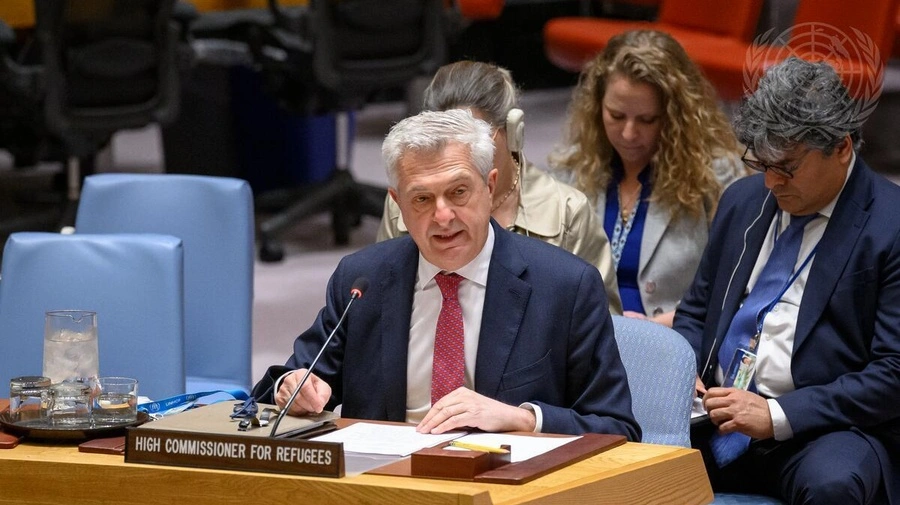UN High Commissioner for Refugees Filippo Grandi has lauded Bangladesh for its new approach to Rakhine conflict and called for urgent international engagement to address the worsening humanitarian situation in Myanmar, warning that continued stagnation risks further instability across the region.
Speaking before the UN Security Council, Grandi painted a grim picture of the crisis, citing ongoing fighting between the Myanmar military (Tatmadaw) and various armed groups, alongside the devastating impact of a recent earthquake.
The plight of the Rohingya minority remains especially dire, he said, noting that more than 1.2 million Rohingya refugees are now living in camps around Cox’s Bazar, Bangladesh.
“We must thank Bangladesh and its people for having provided refuge over the years,” Grandi stated.
However, he warned that the Rohingya community remains trapped in dependency. “They languish in camps, without work, deprived of agency, entirely dependent on humanitarian aid, which grows ever more precarious,” he said, highlighting that half of the refugee population is under 18 years old.
Grandi emphasised the growing frustration among young refugees, observing that while they are connected to the world through the internet, they remain disconnected from opportunities, making them vulnerable to dangerous sea journeys or recruitment by militant groups.
Despite the challenges, Grandi pointed to a rare window of opportunity.
He welcomed recent efforts by Bangladesh’s interim government, led by Chief Adviser Dr. Muhammad Yunus, to engage with parties to the conflict in Rakhine State to seek a resolution. “Many will say such a solution is impossible, citing bloodshed, discrimination, and competing interests,” Grandi acknowledged, but urged the international community not to lose hope.
“The inertia must be broken,” he said appealing for stronger global support for efforts toward peace, humanitarian assistance, and sustainable solutions for the Rohingya people.


